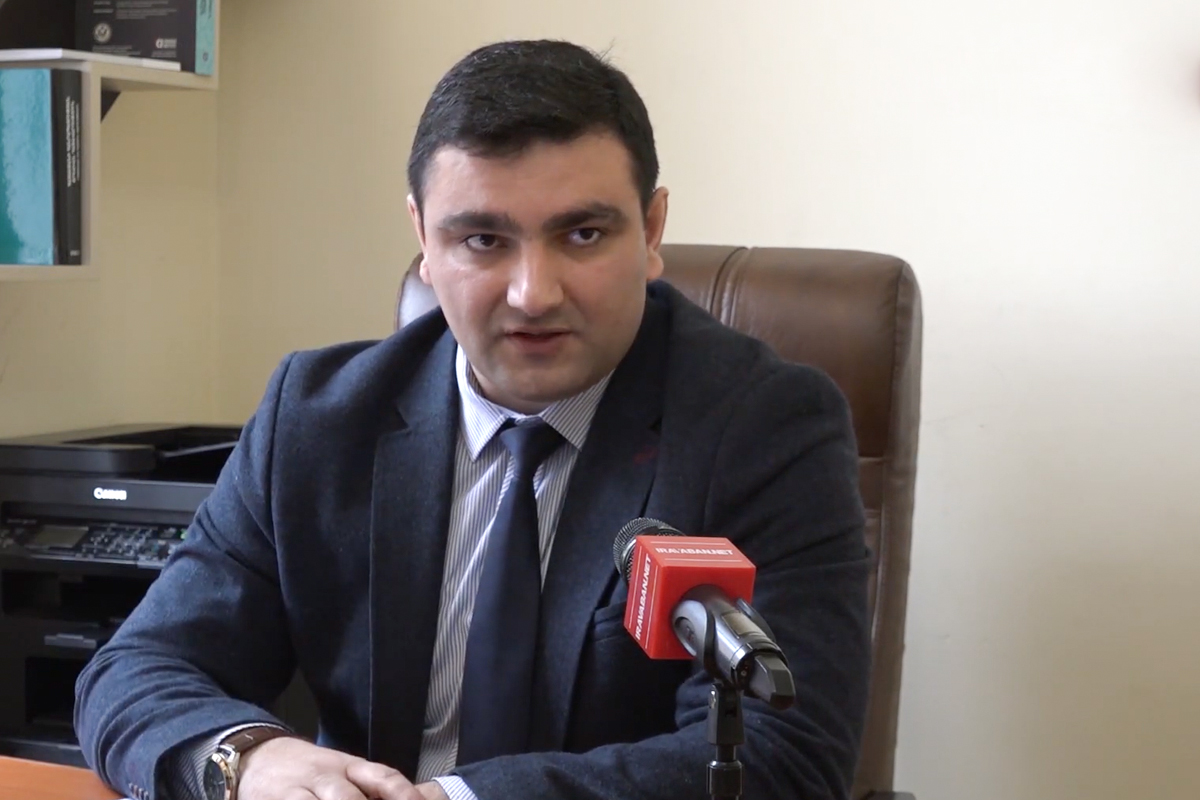Objective 17 of the Action Plan stemming from the Judicial and Legal Reform Strategy 2019-2023 is to increase the efficiency of the advocacy system. Iravaban.net talked about the topic with advocate Davit Asatryan.
– Mr. Asatryan, one of the strategic directions is the expansion of the circle of beneficiaries of free legal aid, the development of alternative structures for providing free legal aid. What changes have been made in this area and what will change if more people will receive free legal aid?
– First of all, I would like to state that one of the important features of the provision of free legal aid by the state is its quality. Without quality legal assistance, implementation of this obligation cannot be guaranteed. Under these circumstances, the workload of the Public Defender’s Office does not always comply with this principle, because, objectively, even the best professionals can have problems providing quality legal assistance in case of overload. Therefore, the state should not, first of all ensure the relief of the workload of the Public Defender’s Office rather than expand the range of beneficiaries, and only then think about the remaining issues. I think this issue is outdated in these conditions.
– It is also planned to increase the efficiency of the activities of public defenders. In conversations with us for years, the employees of the Public Defender’s Office have stated that the workload is high, the salary is not high. What steps do you think have been taken in this direction?
– The more I have the opportunity to follow the work of the Public Defender’s Office, the more I am convinced that there is no serious progress in terms of reducing the workload of the office and financial satisfaction.
I have always insisted on the idea that the state can fulfill its obligations to provide quality legal aid free of charge as a result of providing certain privileges to law firms and law offices operating in Armenia. For example, in the form of tax benefits, advocate for law firms to conduct larger pro bono cases related to the protection of the rights of vulnerable persons.
I presented that idea in a number of meetings, but it remained an idea. In practice, I work pro bono to protect the rights of vulnerable people, but for that job I can end up in the tax administration, as the issue is not regulated by law.
– According to the strategy, the development of activity of the school of advocates is also envisaged. You also attended the school. What visible changes have taken place in the last two years or what would you change?
– The school of advocates has passed a long way and a lot of steps have been taken to develop that institution. I can say that the courses offered at the law school are not inferior in terms of chronology and content to those available in other state institutions operating in Armenia, for example, the Academy of Justice.
As a suggestion, I can mention the fact that more attention is paid to the practical work of the people studying at the school of advocates, because the people who have already received legal education study at the school and they need more practical skills.
– The Judicial and Legal Reform Strategy envisages improvement of the advocate’s conduct and integrity rules. What gaps do you see here?
– I think that the rules of conduct and integrity of the lawyer in the advocacy community in Armenia are at a higher level than in many professional communities. One of the basic principles of advocacy is the protection of unfettered rights, and the more we deepen the rules of conduct and integrity and the degree of rigor, the more we will limit the ability of an advocate to act freely and to protect the rights of his client effectively.
– Mr. Asatryan, the structure of the Chamber of Advocates is also regularly talked about. The Judicial and Legal Reform Strategy envisages the development of the internal structures of the Chamber of Advocates, and in this context, the Ministry of Justice has submitted for public discussion the draft on amendments and additions to the Law on Advocacy, according to which a ban on party membership will be imposed on the President of the Chamber of Advocates and the Director of the School of Advocates.
– I do not understand the need to develop the internal structures of the Chamber of Advocates, which I did not find in the justifications. Based on what facts or phenomena did the state find it necessary to develop internal structures? The meaning of the word “development” is also unclear, whether the proposed options are in fact development or regression, and a more controllable advocacy community. As for the ban on party membership for the director of the School of Advocates, I am in favor of it.


















